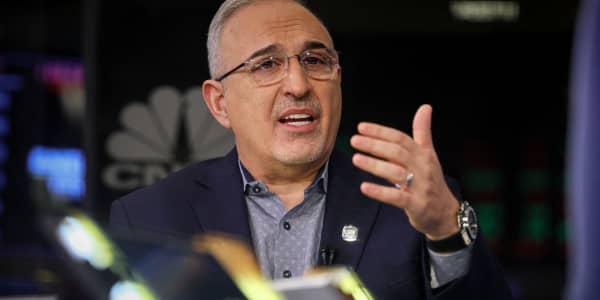Record-high resignations and rampant employee job hopping in the wake of the pandemic helped coin the phrase The Great Resignation, but recession fears and massive layoffs quickly ushered in yet another cleverly named era: The Big Stay.
The phrase came into being to signal a rebalancing to pre-pandemic tenure levels as workers, perhaps frightened by worsening economic conditions, decided to stay put. Even so, HR professionals would be wise to note that even with less job hopping, employee loyalty looks vastly different than it did before the pandemic.
Recent Bureau of Labor Statistics data showed a decline in job openings in the U.S. in both May and June relative to April, despite the total number of quits increasing by 250,000 in June. Experts warn companies that even though jobs are tightening and there might be fewer opportunities, employees will still quit if they're not happy, or if their needs aren't being met.
"With economic and job fears and companies paying more attention to employee needs, people are more satisfied," said Jon Greenawalt, senior vice president of customer transformation at performance management technology platform 15five. "As the power dynamic shifts back to the employer, there's a temptation, particularly at the executive level, to roll back benefits, perks and support initially offered to attract and retain people, and that's a slippery slope."
The Great Resignation was a result of employees' decreased tolerance for companies and leaders not valuing people, Greenawalt said, and "people are not going to be loyal to a company that isn't loyal to them, no matter how tough the circumstances get."
Match your employees' expectations
While the pandemic changed every facet of daily life, it chiefly prompted employees to raise the standards for how they're treated in the workplace. From loud and quiet quitting to the cat-and-mouse game of RTO policies and dissatisfaction with compensation, workers are burned out and are setting the bar higher for their employers.
"The world changed, and the Great Resignation opened up the employee's mind about what they really want in order to be satisfied and engaged in their work," Greenawalt said.
Research by his company shows that in a post-pandemic work environment, workers want four major things from their employers: engagement, autonomy, role clarity and investment.
Engaging with employees is the most valued way to keep your workers, and it's expected from employers now, Greenawalt said. "People want to feel valued, respected and heard, and they want to be a part of an organization that is up to something and is purposeful."
"Autonomy isn't as black and white as being in the office five days a week or working remotely five days a week," Greenawalt said. "Each company has to find the hybrid model that works for them, and not every company can do it, but employees want that freedom."
Role clarity and investment are growing expectations, Greenawalt said, especially among younger generations of workers. These expectations include a clear definition of responsibilities, additional compensation when new tasks are added on, and an investment from the company and managers in the overall career trajectory of each employee.
"Companies need to realize that they can't play the game like they did prior to the pandemic. They've got to take employees' needs and desires more seriously," Greenawalt said.
Tenure trending down
Over time, as each new generation enters the workforce, the average tenure for employees tends to drop. From 2012 to 2022, the average time an employee stayed at one company dropped from 4.6 years to 4.1 years, according to Nick Bunker, director of North American economic research at Indeed's Hiring Lab.
A pause in overall job movement could also be attributed to the fact that 2021 saw roughly 47 million people leave their jobs. Those workers are less than two years into their role, so they're still learning and gaining knowledge, says Erin Lazarus, director of solution architects at SHL, a data and insights platform for talent acquisition and management.
"Those 47 million people — that's 30% of the workforce, so everyone is brand new to their rolls, and they're most likely going to stay put for another couple of years," Lazarus said. Other factors such as artificial intelligence, higher interest rates, and a potential recession could still shake things up, she says. But for HR leaders, the focus should always be on keeping pace with what employees are valuing in their work experience.
"The next few years are going to be interesting, but when I think about the Big Stay, it certainly has its nuances," Lazarus said. "There's more to it than just: The Great Resignation is over, so here's the next trend."
To join the CNBC Workforce Executive Council, apply at cnbccouncils.com/wec.






